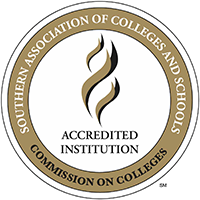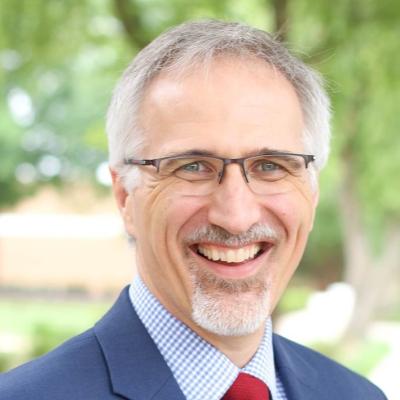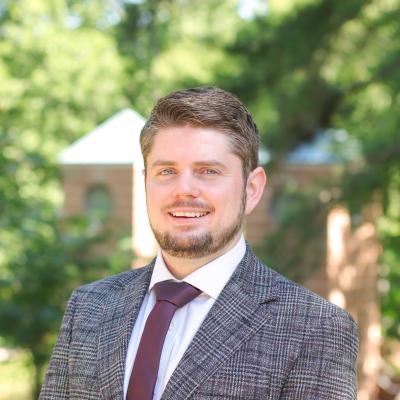Gain advanced theological knowledge to enhance your career
CIU’s Columbia Biblical Seminary’s Master of Arts in Theological Studies is designed to help you gain a better understanding of your part in God’s mission, whether you are seeking advanced theological knowledge or to enhance your career. The program is rigorous and interdisciplinary, emphasizing biblical studies, church history, intercultural studies and theology. In it, you will build a solid theological foundation that will help inform the career and life decisions you make after graduation, bringing you closer to your goals — and to Him.
- How to engage in high-level, publishable critical research, analysis and writing about theology and its related disciplines
- Methods of biblical interpretation and how to apply it in different contexts
- Techniques and tools for explaining and evaluating Bible doctrine
Why Choose CIU’s Columbia Biblical Seminary
The Columbia Biblical Seminary offers an evangelical context for your education and practical hands-on learning with professors from a wide array of evangelical denominations. The faculty are skilled teachers and scholars who make it a priority to support and encourage their students. You will be in courses with diverse students from around the world. You will receive Accordance Bible software at no additional cost.
Overall Benefits of the Degree
You will gain:
- Knowledge: the Columbia Biblical Seminary MA in Theological Studies allows you to delve deep into the study of the Bible and theology. It provides you with a greater understanding of Christianity, theological concepts and historical contexts. This knowledge can be personally enriching and intellectually stimulating.
- Academic and Research Skills: Pursuing am MA in Theological Studies helps develop critical thinking, analytical reasoning and research skills. You learn to analyze biblical texts, interpret theological doctrines and engage in scholarly debates. These skills are valuable in various professional settings, including academia, research and writing.
- Career Opportunities: While some individuals pursue an MA in Theological Studies to prepare for a career in Christian leadership (pastor, chaplain, professor, etc.), there are other career paths where this degree can be beneficial. Many Christian organizations, nonprofits and educational institutions value individuals with a solid understanding of theology and Scripture. You may find opportunities in teaching, counseling, community outreach and religious administration.
- Personal and Spiritual Growth: Studying theology can have a profound impact on personal and spiritual growth. It provides an opportunity to explore and reflect on questions of meaning, ethics, morality and the nature of God. Engaging with theological ideas and engaging in discussions with peers and professors can deepen your own faith or belief system and contribute to personal development.
- Cultural Competence: In an increasingly diverse world, having a deep understanding of the Bible and theology is invaluable. In order to effectively communicate with other faith traditions, a firm grasp on what you believe is essential. An MA in Theological Studies equips you with the knowledge and skills to engage with people of diverse religious backgrounds and promote dialogue and understanding. This cultural competence is valuable in fields such as international relations, missions, social work or any profession that involves working with diverse populations.
- Continuing Education: For those who are already involved in Christian leadership or ministry, a master’s in Theological Studies can provide an opportunity for continuing education and professional development. It allows you to deepen your knowledge, expand your skill set and stay current with theological and academic trends.
Featured Faculty
What Will I Study?
- CBS 5000 Succeeding in Seminary
This course prepares you for your studies at Columbia Biblical Seminary. You will be introduced to five core values that reflect the institution's mission and ethos. Services and resources available to students will be addressed, as will expectations and guidelines for being successful in seminary. You must complete this course during your first term as a seminary student.
0.00 credit hours
- BIB 5112 Introduction to the Old Testament 1
In this course, you will trace the structure, content, and purpose of the Old Testament Pentateuch and Historical books. You will identify key theological themes and relate the content of these books to contemporary Christian faith and practice.
3.00 credit hours
- BIB 5113 Introduction to the Old Testament 2
In this course, you will trace the structure, content, and purpose of the Old Testament Poetic and Prophetic books. You will identify key theological themes and relate the content of these books to contemporary Christian faith and practice.
3.00 credit hours
- BIB 5132 Gospels: God's Means of Providing Redemption
This course will guide you through a chronological, synthetic study of the four gospel records, emphasizing the time, place, circumstances, and persons involved in the events of Jesus' ministry. The gospel writers narrate the life, death, and resurrection of Jesus Christ, God's appointed Redeemer of the world, who fulfills the promises and prophecies of the Old Testament.
3.00 credit hours
- BIB 5133 Acts to Revelation: God's People Proclaiming Redemption Globally
In this course, you will study the introductory background, structure, and content of the New Testament books, Acts to Revelation, understood within their first-century life setting. The authors of Acts, the letters, and Revelation not only relate the advance of the Early Church in proclaiming redemption globally, but they also provide the contemporary church with normative missionary documents to guide it in fulfilling Christ's commission.
3.00 credit hours
- BIB 5410 Hermeneutics
In this course, you will explore and defend hermeneutical principles and processes based on evangelical presuppositions of Scripture and authorial intended meaning. You will apply an exegetical method to interpret Old and New Testament passages from a variety of biblical genres and apply them to contemporary settings.
3.00 credit hours
- ICS 6024 Understanding Cultures & Worldviews
This course will enable you to understand the worldview assumptions that are foundational to a person's belief systems and behavior patterns. You will analyze the culture and worldview of an ethno-linguistic or socio-economic grouping of people from a biblical worldview perspective. You will also consider elements of biblical contextualization.
3.00 credit hours
- MIN 5300 Foundations of Spiritual Formation
In this course, you will examine the foundational principles of spiritual formation for an effective life and ministry with emphasis on personal sanctification and growth with others in a mutually-edifying community.
3.00 credit hours
- THE 6310 Theology and Ethics 1
In this course, you will examine the doctrines of Scripture, God, Christ, and Eschatology, as well as ethical principles related to these doctrines.
3.00 credit hours
- THE 6320 Theology and Ethics 2
In this course, you will examine the doctrines of Anthropology, Soteriology, Pneumatology, and Ecclesiology, as well as ethical principles related to these doctrines.
3.00 credit hours
- RES 7961 Bible/Theology Integrative Seminar
This course offers you a guided study in the techniques and tools required to pursue in-depth academic library-based research on a focused topic. As the summative exercise for the course, you will produce a 25-30 page research paper of publishable quality on a biblical, historical, or theological topic chosen in consultation with the course instructor.
3.00 credit hours
Admission Requirements
- completed application
- affirmation that you are a Christian and agree with CIU’s Statement of Faith
- official transcript(s) for completed bachelor’s degree(s) * +
- official transcript(s) for any graduate-level coursework +
- essay (approximately 800 words)
- church leader reference
- * If you have not completed an undergraduate bachelor’s degree, you can still potentially apply for admission in accordance with CIU’s Non-Baccalaureate Policy.
- + If you have attended a school outside of the United States, you must have your transcripts validated through World Education Services.
International applicants also need:
- submitted test scores for one of the following standardized tests for the English language:
- Test of English as a Foreign Language (minimum score of 79)
- DuoLingo (minimum score of 105)
- completed educational background form (provided after application submission)
- financial certification of funds form (provided after application submission)
Accreditation and Accolades



Career Path Opportunities
- Academic Careers: Teaching at colleges, seminaries and universities or PhD. and research work
- Church & Ministry Work: Serving as a pastor or associate pastor, member of a church staff or as a campus or parachurch ministry professional
- Missionary: Work cross-culturally both in the United States and abroad to help communities and draw people closer to God
Top FAQs
- What career opportunities are available with an MA in Theological Studies?
-
Academic Careers: Teaching at colleges, seminaries and universities or Ph.D. and research work
Church & Ministry Work: Serving as a pastor or associate pastor, member of a church staff or as a campus or parachurch ministry professional
Missionary: Work cross-culturally both in the United States and abroad to help communities and draw people closer to God
- Can I take this program residentially, online or both?
-
Our MA in Theological Studies program is fully available either residentially or online. All its required courses are offered in both formats.
As a residential student, you will benefit from close interaction with professors and other students, building relationships that can support you for a lifetime of ministry. Classes are designed around block schedules, which gives you flexibility if you are working or serving in ministry while taking courses. Residential students have the option to take courses online if they wish.
As an online student, you will benefit from courses that foster your learning within the context of an intentional learning community. We recognize that not everyone can uproot themselves and move to seminary. For this reason, all our courses are asynchronous. This allows you to continue working and serving where you are located while taking courses. At the same time, you will be provided with opportunities to have regular live online meetings with your professors and classmates, if you so desire.
- How long does it take?
-
Residential courses follow a 16-week semester format, with two semesters per calendar year (Fall and Spring). Thus, residential students can complete this program in under two years (full time, taking three courses per semester) or in about five years (part time, taking two courses per semester).
Online courses follow an eight-week term format, with six terms per calendar year (Spring 1, Spring 2, Summer 1, Summer 2, Fall 1, Fall 2). Online students can complete this program in about two years (full time, taking two courses per online term) or in about three years (part time, taking one course per online term).
Hybrid students can complete this program in about two years.
- When can I start this program?
-
Residential courses follow a 16-week semester format and have two starts every year. The spring semester begins in January and the fall semester begins in August, with a break for summer in between semesters.
Online courses follow an eight-week term format and have six starts every year. Every eight weeks is a new start, meaning there are two online terms offered each spring, summer and fall.
- How much does it cost?
-
The Columbia Biblical Seminary MA in Theological Studies is competitively priced. Check the Tuition and Fees page for costs and Financial Aid to apply for scholarships.
- Am I provided Bible software as a student?
-
Upon enrolling in your first course, you will receive a professional-level copy of Accordance Bible Software, customized for your studies at Columbia Biblical Seminary. It is yours to keep at graduation.





